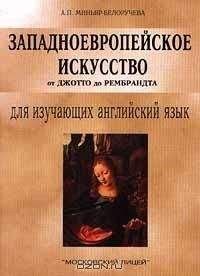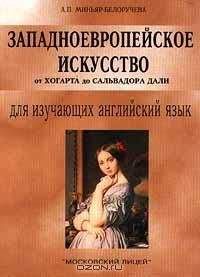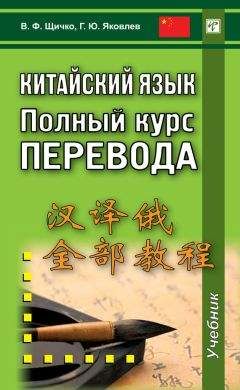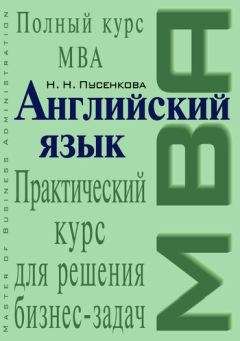Илья Франк - Английский язык с Грэмом Грином. Третий человек
"Tell me how he died (расскажите мне, как он умер)."
"I was with him (я был с ним). We came out together from the door of his flat (мы вышли наружу вместе из двери его квартиры) and Harry saw a friend he knew across the road (и Гарри увидел друга, которого он знал, через дорогу)—an American called Cooler (американца по имени Кулер). He waved to Cooler (он помахал Кулеру) and started across the road to him (и бросился через дорогу к нему) when a jeep came tearing round the corner (когда джип вылетел: «пришел мчащийся» из-за угла) and bowled him over (и сбил его). It was Harry's fault really (это была, вообще-то, вина Гарри)—not the driver's (не водителя)."
"Somebody told me he died instantaneously (кое-кто сказал мне, что он умер мгновенно)."
"I wish he had (я хотел бы, чтобы это было так). He died before the ambulance could reach us though (и все же он умер прежде, чем скорая помощь смогла достичь нас = чем прибыла…)."
"He could speak then (значит, он мог говорить)?"
"Yes. Even in his pain he worried about you (даже в своей боли он беспокоился о вас)."
"What did he say (что он сказал)?"
"I can't remember the exact words, Rollo (я не могу вспомнить точные слова, Ролло)—I may call you Rollo (я могу называть вас Ролло), mayn't I (не так ли)? he always called you that to us (он всегда называл вас нам этим именем). He was anxious (он очень хотел; anxious — озабоченный, беспокоящийся; сильно желающий, ср.: I am anxious to see him — мне очень хочется повидать его) that I should look after you (чтобы я присмотрел за вами; to look after — следить глазами, взглядом; присматривать, ухаживать за /кем-л., чем-л./, заботиться о /ком-л., чем-л./) when you arrived (когда вы приедете). See that you were looked after (позаботиться, чтобы за вами присмотрели). Get your return ticket for you (достать ваш возвратный билет для вас)." In telling me Martins said (говоря это мне, Мартинс сказал), "You see (вы видите) I was collecting return tickets as well as cash (я собирал обратные билеты так же, как наличные)."
dislike [dIs'laIk], toupee ['tu:peI], bald [bO:ld], romantic [rqu'mxntIk], suddenly ['sAdnlI], pretty ['prItI], hangover ['hxN"quvq], appear [q'pIq], indescribably ["IndIs'kraIbqblI], false [fO:ls], enthusiasm [In'Tju:zIxzm], tension ['tenS(q)n], suspense [sqs'pens], guess [ges], error ['erq], ambulance ['xmbjulqns], arrive [q'raIv], collect [kq'lekt], return [rI'tq:n]
WHAT I DISLIKED about him at first sight," Martins told me, "was his toupee. It was one of those obvious toupees—flat and yellow, with the hair cut straight at the back and not fitting close. There must be something phony about a man who won't accept baldness gracefully. He had one of those faces too where the lines have been put in carefully, like a make-up, in the right places—to express charm, whimsicality, lines at the corners of the eyes. He was made-up to appeal to romantic schoolgirls."
This conversation took place some days later—he brought out his whole story when the trail was nearly cold. When he made that remark about the romantic schoolgirls I saw his rather hunted eyes focus suddenly. It was a girl—just like any other girl, I thought —hurrying by outside my office in the driving snow.
"Something pretty?"
He brought his gaze back and said, "I'm off that for ever. You know, Сalloway, a time comes in a man's life when he gives up all that sort of thing ..."
"I see. I thought you were looking at a girl."
"I was. But only because she reminded me for a moment of Anna—Anna Schmidt."
"Who's she? Isn't she a girl?"
"Oh, yes, in a way."
"What do you mean, in a way?"
"She was Harry's girl."
"Are you taking her over?"
"She's not that kind, Calloway. Didn't you see her at his funeral? I'm not mixing my drinks any more. I've got a hangover to last me a life-time."
"You were telling me about Kurtz," I said.
It appeared that Kurtz was sitting there, making a great show of reading The Lone Rider from Santa Fé. When Martins sat down at his table he said with indescribably false enthusiasm, "It's wonderful how you keep the tension."
"Tension?"
"Suspense. You're a master at it. At the end of every chapter one's left guessing ..."
"So you were a friend of Harry's," Martins said.
"I think his best," but Kurtz added with the smallest pause in which his brain must have registered the error, "except you of course."
"Tell me how he died."
"I was with him. We came out together from the door of his flat and Harry saw a friend he knew across the road—an American called Cooler. He waved to Cooler and started across the road to him when a jeep came tearing round the corner and bowled him over. It was Harry's fault really—not the driver's."
"Somebody told me he died instantaneously."
"I wish he had. He died before the ambulance could reach us though."
"He could speak then?"
"Yes. Even in his pain he worried about you."
"What did he say?"
"I can't remember the exact words, Rollo—I may call you Rollo, mayn't I? he always called you that to us. He was anxious that I should look after you when you arrived. See that you were looked after. Get your return ticket for you." In telling me Martins said, "You see I was collecting return tickets as well as cash."
"But why didn't you cable to stop me (но почему вы не телеграфировали, чтобы остановить меня)?"
"We did (мы сделали это), but the cable must have missed you (но телеграмма должна была пропустить вас = наверное, не дошла до вас). What with censorship and the zones (из-за цензуры и зон; what with — из-за: «что с»), cables can take anything up to five days (телеграммы могут занять = идти сколько угодно, вплоть до пяти дней; to take — брать; anything — что угодно)."
"There was an inquest (было расследование; inquest — следствие, дознание)?"
"Of course (конечно)."
"Did you know that the police have a crazy notion (знали ли вы, что у полиции бредовое представление; crazy — сумасшедший, слабоумный; бредовый, сумасшедший /план, мысль и т. п./) that Harry was mixed up in some racket (что Гарри был замешан в каких-то махинациях)?"
"No. But everyone in Vienna is (но каждый в Вене замешан). We all sell cigarettes (мы все продаем сигареты) and exchange schillings for Bafs (и обмениваем шиллинги на Бафы) and that kind of thing (и всякое такое; kind — разновидность)."
"The police meant something worse than that (полиция подразумевала что-то худшее, чем это)."
"They get rather absurd ideas sometimes (у них иногда бывают весьма абсурдные идеи)," the man with the toupee said cautiously (сказал осторожно человек с паричком).
"I'm going to stay here (я собираюсь остаться здесь) till I prove them wrong (пока я не докажу их неправоту: «пока я докажу их неправыми»)."
Kurtz turned his head sharply (Куртц резко повернул свою голову) and the toupee shifted very very slightly (и паричок чуть-чуть сдвинулся; slightly — мало, незначительно, несущественно, немного, слегка). He said, "What's the good (что /в этом/ хорошего = что толку)? Nothing can bring Harry back (ничто не может вернуть Гарри)."
"I'm going to have that police officer run out of Vienna (я собираюсь сделать так, чтобы этого полицейского офицера выгнали из Вены)."
"I don't see what you can do (я не вижу, что вы можете сделать)."
"I'm going to start working back from his death (я собираюсь начать работать начиная с его смерти). You were there and this man Cooler and the chauffeur (вы были там, и этот человек Кулер, и шофер). You can give me their addresses (вы можете дать мне их адреса)."
"I don't know the chauffeur's (я не знаю адрес шофера)."
"I can get it from the coroner's records (я могу получить его из записей коронера /следователь, ведущий дела о насильственной или скоропостижной смерти/). And then there's Harry's girl (и затем есть девушка Гарри)..."
Kurtz said, "It will be painful for her (это будет болезненно для нее)."
"I'm not concerned about her (я не забочусь о ней; concerned — заинтересованный; увлеченный, интересующийся; озабоченный, беспокоящийся). I'm concerned about Harry (я забочусь о Гарри)."
"Do you know what it is that the police suspect (вы знаете, что именно подозревает полиция)?"
"No. I lost my temper too soon (я потерял мое самообладание слишком скоро; to lose — терять)."
"Has it occurred to you (приходило ли вам в голову)," Kurtz said gently (сказал Куртц мягко), "that you might dig up something (что вы могли бы раскопать что-то; to dig up — выкопать наружу: «вверх»)—well, discreditable to Harry (ну, дискредитирующее Гарри)?"
"I’ll risk that (я рискну этим = я готов к этому)."
"It will take a bit of time—and money (это займет некоторое время — и потребует некоторого количества денег; bit — кусочек; частица, небольшое количество; a bit — немного, чуть-чуть)."
"I've got time (у меня есть время) and you were going to lend me some money (и вы собирались одолжить мне немного денег), weren't you (не правда ли)?"
"I'm not a rich man (я не богатый человек)," Kurtz said. "I promised Harry to see you were all right (я обещал Гарри позаботиться, чтобы у вас было все хорошо) and that you got your plane back (и чтобы вы получили ваш самолет /чтобы улететь/ назад)..."
"You needn't worry about the money (вы не должны беспокоиться о деньгах)—or the plane (или о самолете)," Martins said. "But I’ll make a bet with you (но я заключу пари с вами)—in pounds sterling (в фунтах стерлингов)—five pounds against two hundred schillings (пять фунтов против двухсот шиллингов)—that there's something queer about Harry's death (что есть что-то странное в смерти Гарри; about — около; зд. — значение наличия каких-л. предметов, свойств у человека, ситуации и т. п.: в, у)."
cable ['keIbl], inquest ['INkwest], notion ['nquS(q)n], mean [mi:n], meant [ment], chauffeur ['Squfq], concern [kqn'sq:n], suspect /глагол/ [sqs'pekt], discreditable [dIs'kredItqbl]
"But why didn't you cable to stop me?"
"We did, but the cable must have missed you. What with censorship and the zones, cables can take anything up to five days."
"There was an inquest?"
"Of course."
"Did you know that the police have a crazy notion that Harry was mixed up in some racket?"
"No. But everyone in Vienna is. We all sell cigarettes and exchange schillings for Bafs and that kind of thing."
"The police meant something worse than that."
"They get rather absurd ideas sometimes," the man with the toupee said cautiously.
"I'm going to stay here till I prove them wrong."
Kurtz turned his head sharply and the toupee shifted very very slightly. He said, "What's the good? Nothing can bring Harry back."
"I'm going to have that police officer run out of Vienna."
"I don't see what you can do."
"I'm going to start working back from his death. You were there and this man Cooler and the chauffeur. You can give me their addresses."
"I don't know the chauffeur's."
"I can get it from the coroner's records. And then there's Harry's girl ..."
Kurtz said, "It will be painful for her."
"I'm not concerned about her. I'm concerned about Harry."
"Do you know what it is that the police suspect?"
"No. I lost my temper too soon."
"Has it occurred to you," Kurtz said gently, "that you might dig up something—well, discreditable to Harry?"
"I’ll risk that."
"It will take a bit of time—and money."
"I've got time and you were going to lend me some money, weren't you?"
"I'm not a rich man," Kurtz said. "I promised Harry to see you were all right and that you got your plane back ..."
"You needn't worry about the money—or the plane," Martins said. "But I’ll make a bet with you—in pounds sterling—five pounds against two hundred schillings—that there's something queer about Harry's death."
It was a shot in the dark (это был выстрел в темноту = наугад), but already he had this firm instinctive sense (но уже он имел это твердое инстинктивное чувство) that there was something wrong (что там было что-то неправильное), though he hadn't yet attached the word "murder" to the instinct (хотя он еще не прибавил слово «убийство» к инстинкту; to attach — прикреплять /клеем и т. п./; прилагать, прикладывать /to/; прикреплять, связывать /о чем-л. нематериальном/). Kurtz had a cup of coffee halfway to his lips (у Куртца была чашка кофе на полпути к губам) and Martins watched him (и Мартинс наблюдал за ним). The shot apparently went wide (выстрел, очевидно, попал мимо; wide — широкий; to go wide — попасть мимо; wide — широкий; далекий, удаленный); an unaffected hand held the cup to the mouth (равнодушная рука держала чашку у рта; unaffected — не затронутый /by — чем-л./; не подвергшийся влиянию; оставшийся безучастным, равнодушный /by – к/; to affect — подвергать физическому воздействию, давлению) and Kurtz drank (и Куртц пил), a little noisily (немного шумно; noise — шум), in long sips (долгими глотками). Then he put down the cup (затем он поставил вниз чашку) and said (и сказал), "How do you mean (что: «как» вы имеете в виду)—queer (странное)?"




